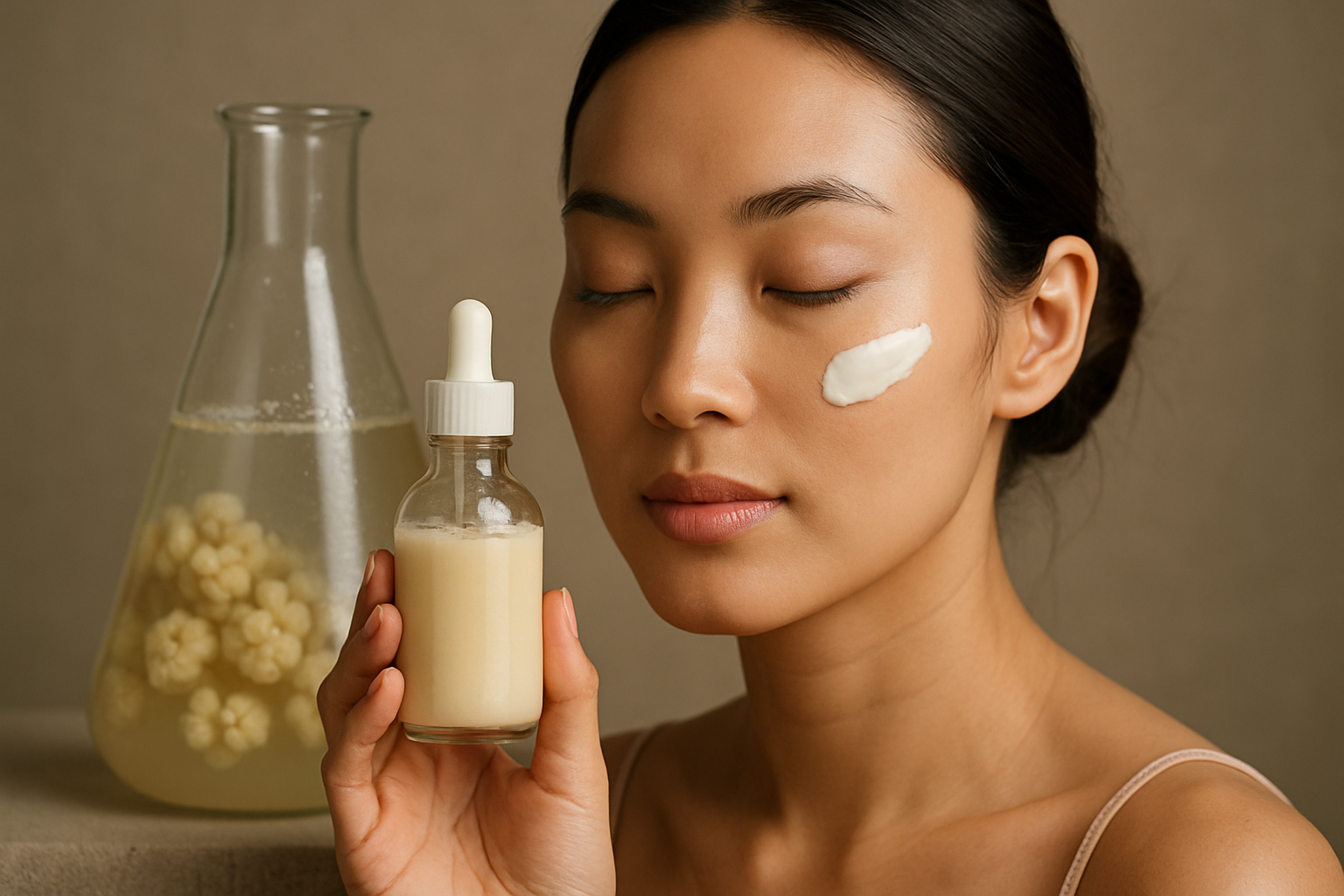Fermented Beauty: The Next Frontier in Skincare
In the ever-evolving world of beauty and skincare, a new trend is bubbling up from an unexpected source: fermentation. This ancient process, long revered in culinary traditions, is now making waves in the beauty industry. Fermented skincare products are emerging as a powerful force, promising enhanced nutrient absorption, improved skin barrier function, and a host of other benefits. As consumers increasingly seek natural, effective solutions for their skincare needs, fermented beauty is positioning itself at the forefront of innovation. This article delves into the science behind fermented skincare, its historical roots, current market trends, and the potential it holds for transforming our approach to beauty and self-care.

One of the key advantages of fermented skincare ingredients is their enhanced bioavailability. The fermentation process increases the concentration of active compounds and creates new ones, resulting in products that are more potent and effective than their non-fermented counterparts. Additionally, fermented ingredients often have a lower molecular weight, allowing them to penetrate deeper into the skin for maximum efficacy.
Research has shown that fermented ingredients can also help balance the skin’s microbiome, the complex ecosystem of microorganisms that live on our skin. A healthy microbiome is essential for maintaining skin barrier function, regulating inflammation, and protecting against harmful pathogens. Fermented skincare products can introduce beneficial bacteria to the skin, supporting a diverse and balanced microbiome.
Historical Roots and Cultural Significance
While fermented beauty may seem like a modern innovation, its roots can be traced back centuries in various cultures. In Korea, fermented ingredients have long been used in traditional skincare practices. For example, “su-seong-ju,” a fermented rice wine, has been used as a beauty tonic for centuries. Similarly, in Japan, sake brewers were known for their soft, youthful hands, leading to the development of sake-based skincare products.
In India, Ayurvedic traditions have incorporated fermented herbs and plants in beauty treatments for thousands of years. The process of fermentation was believed to enhance the potency and efficacy of botanical ingredients. These cultural practices laid the foundation for the modern fermented beauty movement, blending ancient wisdom with contemporary scientific understanding.
Current Market Trends and Industry Impact
The fermented beauty trend has gained significant traction in recent years, with major beauty brands and indie companies alike launching fermented skincare lines. Market research firm Mintel reports that product launches featuring fermented ingredients have increased by 40% annually since 2015. This growth is driven by consumer demand for natural, effective skincare solutions and the increasing influence of Asian beauty trends in the global market.
Industry experts predict that the fermented beauty market will continue to expand, with projections suggesting it could reach $1.4 billion by 2025. This growth is not limited to skincare; fermented ingredients are also making their way into haircare, body care, and even makeup products.
The rise of fermented beauty is also influencing broader industry trends. It has sparked renewed interest in traditional ingredients and processes, encouraging brands to explore other time-honored beauty practices. Additionally, the emphasis on skin microbiome health has led to increased research and development in probiotic and prebiotic skincare.
Benefits and Efficacy of Fermented Skincare
Fermented skincare products offer a range of potential benefits, supported by both traditional knowledge and modern scientific research. Some of the key advantages include:
-
Enhanced nutrient absorption: The breakdown of ingredients during fermentation allows for better penetration and absorption of active compounds.
-
Increased antioxidant activity: Fermentation can boost the antioxidant properties of ingredients, helping to protect the skin from free radical damage and premature aging.
-
Improved hydration: Many fermented ingredients have humectant properties, helping to attract and retain moisture in the skin.
-
Gentle exfoliation: The organic acids produced during fermentation can provide mild exfoliation, promoting cell turnover without harsh scrubbing.
-
Skin barrier support: Fermented ingredients can help strengthen the skin’s natural barrier, improving its ability to retain moisture and defend against environmental stressors.
-
Microbiome balance: By introducing beneficial bacteria to the skin, fermented skincare can support a healthy, diverse skin microbiome.
While more research is needed to fully understand the efficacy of fermented skincare, early studies and anecdotal evidence are promising. A 2012 study published in the Journal of Medicinal Food found that fermented red ginseng had greater anti-wrinkle effects than non-fermented ginseng. Another study in the Journal of Cosmetic Dermatology showed that a cream containing fermented black tea extract improved skin hydration and elasticity.
Challenges and Future Directions
Despite its potential, the fermented beauty trend faces several challenges. One of the primary concerns is the stability and shelf life of fermented skincare products. The live cultures present in some fermented ingredients can be difficult to preserve, requiring careful formulation and packaging.
Another challenge is educating consumers about the benefits and proper use of fermented skincare. Many people are unfamiliar with the concept and may be hesitant to try products containing unfamiliar ingredients or bacteria.
Looking to the future, researchers are exploring new fermentation techniques and ingredients to further enhance the efficacy of fermented skincare. There is growing interest in combining fermented ingredients with other innovative technologies, such as microencapsulation or targeted delivery systems, to maximize their benefits.
The fermented beauty trend also aligns with broader movements towards sustainability and zero-waste beauty. Many fermented ingredients are derived from natural, renewable sources, and the fermentation process itself can be used to upcycle food waste into valuable skincare ingredients.
As the beauty industry continues to evolve, fermented skincare represents a fascinating intersection of tradition and innovation. By harnessing the power of fermentation, beauty brands are creating products that not only deliver results but also tell a compelling story of cultural heritage and scientific advancement. As research progresses and consumer awareness grows, fermented beauty is poised to become a significant force in shaping the future of skincare.






